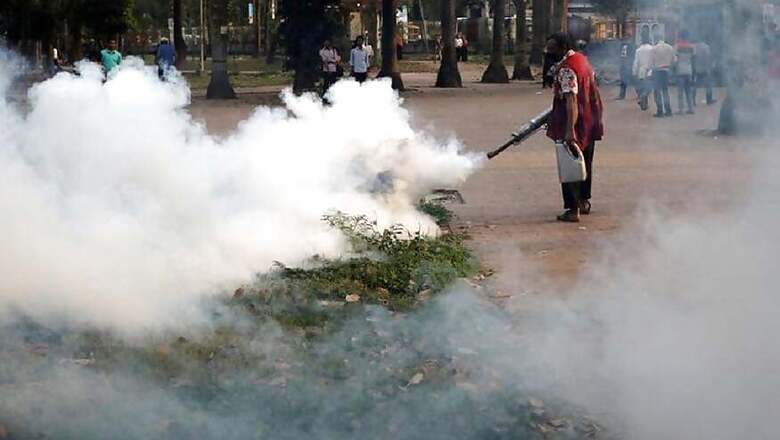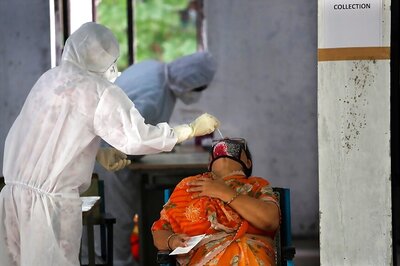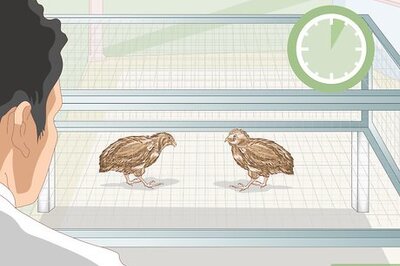
views
A total of 52 dengue cases have been reported this year in Jammu region, so far. Dengue is spread by the bite of the female mosquito (Aedes aegypti).
The mosquitoes breed in stagnant water and bite during early hours in the morning and in the evening before dusk. Other mosquito diseases like malaria, chikungunya are also spread by 'Aedes' species.
According to an official of Health Department as on September 17, about 325 patients were tested for dengue out of which 52 cases were found to be positive. “No death has been reported due to dengue so far,” he added.
The official said that of the 52 dengue cases, 18 have been reported from Jammu district, 15 from Samba, 7 from Rajouri, 3 each from Kathua and Udhampur, 2 each from Poonch and Ramban and from Reasi while the address of one is unknown.
The official said as compared to same period last year, the number of dengue cases is higher but "we cannot call it an alarming situation".
The official said most of the patients affected with the mosquito-borne disease have returned to their home after successful treatment in various hospitals.
“People should not get panic. It is expected after monsoon season due to waterlogging at many places but this year the vector-borne disease knocked the door much earlier due to deficient rains. Health Department is on the job and the situation is under control,” the official added.
“The (Health) Department is taking all necessary measures to further prevent the spread of dengue in Jammu,” he said, adding, the main cause of dengue is stagnant water and the department is spreading awareness among the masses to prevent stagnation of water.
The department has also sensitized its staff and ASHA workers to prevent the spread of dengue.
The official said that teams of Health Department along with Jammu Municipal Corporation (JMC) have initiated fumigation in the city and the process of fogging will continue till the risk of dengue prevails in the city.
“Moreover, the Department has also started releasing anti-larva fishes in still water bodies, like ponds, in urban as well as rural areas to prevent the spread of mosquitoes,” the official said.
People have been advised not to allow accumulation of water anywhere including in empty pots, water coolers, earthen pots, as larvae of dengue mosquitoes breed in stagnated fresh water from 7 to 10 days.




















Comments
0 comment